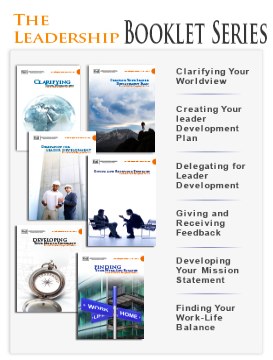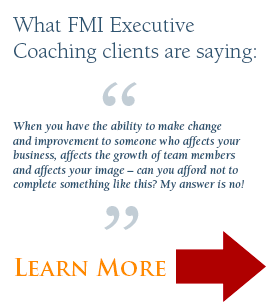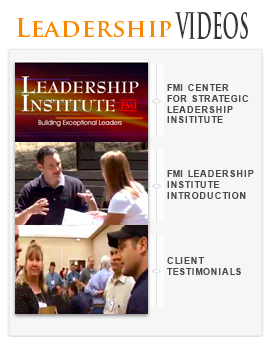
FMI – Leadership eNews for February 2015
Executive Coaching
Just as the best athletes have coaches, strong leaders often have coaches as well in tough times. The need for coaching is even greter. Our FMI coaches bring more than 100 years of combined coaching experience, coupled with specialized industry knowledge, that can help you through these challenging time.
Leadership Institute
The Leadership Institute is a four-day experience that gives you personal insight into your unique leadership style. You will learn how your leadership style impacts others as well as your organization through highly interactive discussions and feedback.
A Letter From Ron Magnus, Managing Director
“If you’re the smartest person in the room, you’re in the wrong room.”
As leaders, we know the value of surrounding ourselves with great talent to challenge our thinking. The same applies with a top-notch board of directors. Good leaders are already listening to their internal talent to drive better internal and external practices. Great leaders also surround themselves with peers and industry leaders and learn from them by developing a strong board of directors.
Even if you already have a board in place, continuously evaluating and strengthening its performance helps your entire organization. In this month’s featured article, Michael Mangum shares personal experiences and broader consequences of developing a board in “Why a Board of Directors?”
Ron Magnus

The Leadership Book Series

Testimonials

The Leadership Insitute

The Leadership Videos
Why a Board of Directors?
Sacred cows and pat answers often emerge as simplistic and narrow-minded. Soon, possibilities seem more numerous. Smart, successful leaders tend to have that type of impact when stepping into a new environment; they respectfully challenge the status quo. And well-chosen outside directors certainly fit that bill.
Download the complete article.
At age 33, I was named president of the family business. Despite having spent a lifetime in its shadow, I was ill-equipped to assume the mantle of leadership placed upon my shoulders. An engineering degree taught me a lot, but the 10 or so years post-graduation had been too comfortable —all spent in a virtual work cocoon where my last name was displayed on all the equipment and everyone knew I was the boss’ son. It was also largely devoid of the “school of hard knocks” lessons that ready a young leader for life’s larger challenges. Something inside told me that I was in over my head.
Where should I turn for help? “Maybe an outside board of directors?” I thought, although I knew my father would disagree. As much as I loved and respected my father, he was from the school of pulling oneself up by his or her bootstraps. Dad had wrestled the business away from other family members and navigated the uncertainty of an emerging industry — construction of the Eisenhower-inspired interstate highway system — all while flying solo. He grew the firm from a sole proprietorship on the brink of failure (due to the death of my grandfather in 1953) to a thriving, market-leading concern.
Dad was a second-generation leader who displayed many founder tendencies: dynamic, driven and decisive. I can vividly remember his telling banks and bonding companies alike that he didn’t believe in budgets, because no one could tell him how many days it was going to rain in a given year. My dad led by force of character, attracting people due to his charismatic style more than by casting a compelling vision of the future. A board of directors that would hold one accountable for performance was antithetical to all that he longed for over the years: business independence.
Admitting that I needed help felt like an admission of failure. It would be like saying that Dad made the wrong choice in tapping me as the successor. Still, the alternative seemed far worse and was certainly fraught with far greater risk. The stakes were simply too high to deny the truth — I desperately needed outside assistance.
Part of my resolve came from my emerging worldview. Worldview is defined as “…a particular philosophy of life or conception of the world.” Even in my relative inexperience, I saw synergy emerge when teams focused on achieving a common objective. Good ideas from one were often further developed by another. Good begat great when people worked together. Yet, in the context of the family business and my limited experience, what did I know?
At the end of my introspection, I came to the conclusion that it was unlikely my worldview would have changed — even with Dad’s experience. We had different models of what it meant to be a leader.
Read the full article to learn how Greg modifies his behavior and worldview without losing his effectiveness tranforming himself into an successful leader.
Read More: Download the Article



